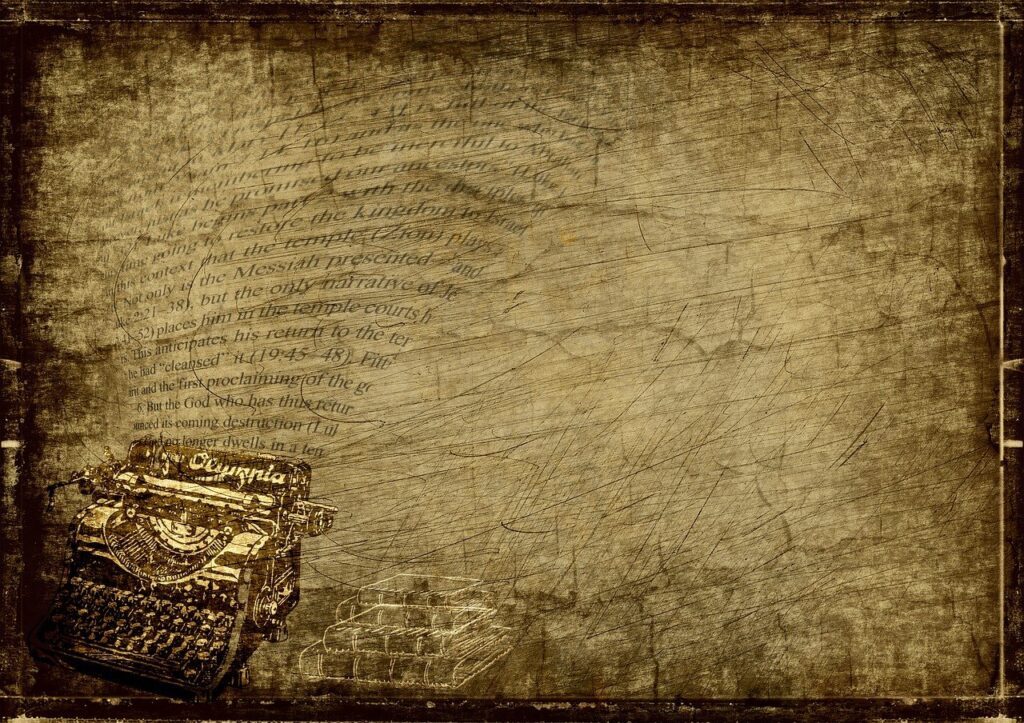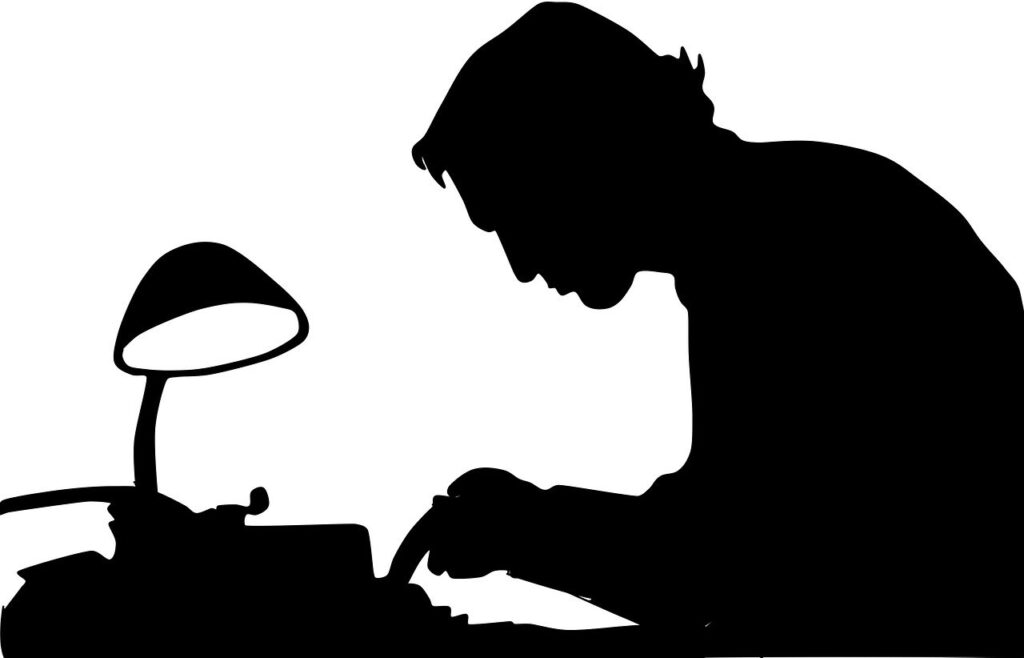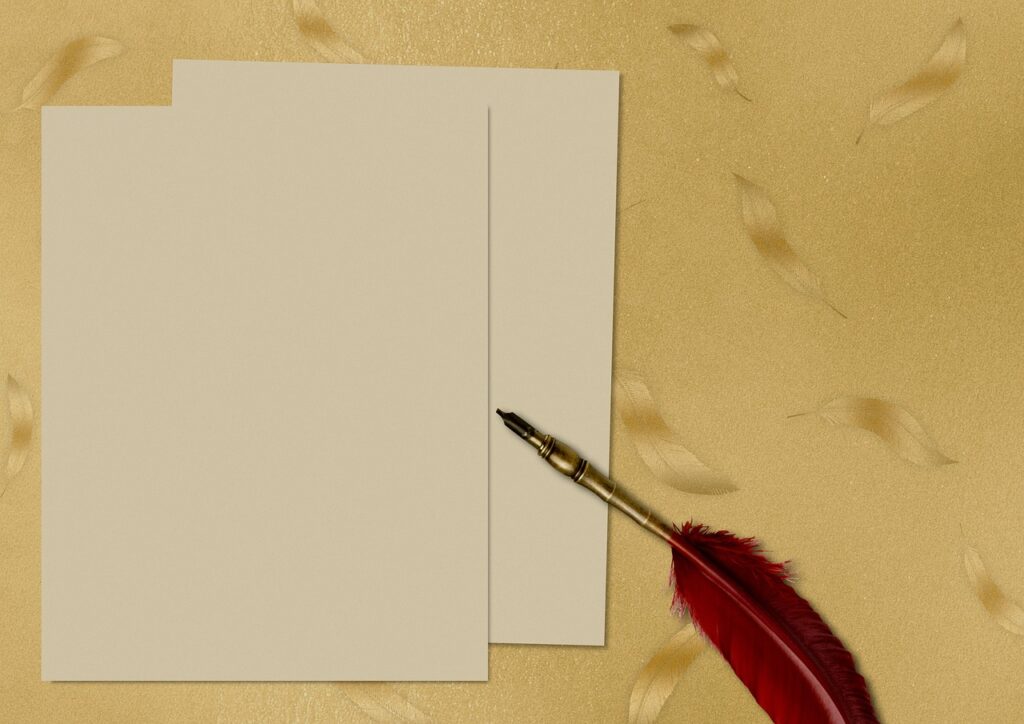
Welcome to our 4th Sunday Writer Meditation session, where we embark on a journey to harness the magic of writing rituals to supercharge our productivity as writers. In today’s fast-paced world, finding dedicated time for creativity can often feel like a challenge. This is where writing rituals come into play, offering a path to unlock your inner creativity and make the most of your writing time.
For writers, developing a set of personalized writing rituals can be a game-changer. These rituals are like secret keys that unlock doors to inspiration, focus, and flow. Whether you’re a seasoned writer seeking to enhance your craft or just starting your writing journey, the power of rituals can transform your productivity.
Join us as we delve into the world of writing rituals, exploring how they can elevate your writing, boost your productivity, and bring a touch of magic to your creative process. Let’s begin this meditative exploration into the realm of productivity-enhancing rituals that can help you achieve your writing goals and aspirations.
The Power of Writing Rituals
Writing rituals, like the sacred incantations of a wizard, possess the ability to transform your writing experience. They are the secret spells that infuse your creative process with intention, focus, and a touch of magic. Let’s delve into the enchanting power of writing rituals and why they hold the key to enhancing your productivity as a writer.
- Unlocking Creativity: Writing rituals provide a structured entry point into the realm of creativity. Just as a seasoned musician warms up before a performance, a writer’s ritual serves as the warm-up act for the mind. It signals to your brain that it’s time to shift into creative mode, helping you bypass mental blocks and dive headfirst into your writing.
- Cultivating Consistency: One of the most significant benefits of writing rituals is their role in establishing consistency. Writing is not a sporadic endeavour but a continuous journey. Rituals create a routine that nurtures your writing practice, making it an integral part of your daily life. When writing becomes a habit, you’re more likely to stay on course and achieve your writing goals.
- Embracing the Creative Space: Writing rituals often involve creating a dedicated writing space. This space becomes a sanctuary for your creativity, a place where the outside world fades into the background, and the words flow freely. It’s your portal to a realm where ideas flourish, and stories come to life.
- Setting Intentions: Rituals allow you to set intentions for your writing session. Whether it’s a specific word count, a plot twist to unravel, or a character’s journey to explore, your ritual helps you focus on what matters most. It aligns your mind with the creative task at hand, reducing distractions and enhancing productivity.
- Inspiring Discipline: In the world of writing, discipline is often the writer’s greatest ally. Writing rituals foster discipline by providing a structure that encourages you to show up consistently. They whisper, “It’s time to write,” even when the world beckons with distractions.
- Unlocking the Muse: Many writers speak of the elusive muse, that divine source of inspiration. Writing rituals serve as the beacon that calls the muse to your side. They create a ritualistic bridge between you and the muse, making it more likely that inspiration will visit you during your dedicated writing time.
- Personalized Magic: Your writing rituals are uniquely yours. They can be as simple as sipping a cup of herbal tea, lighting a specific candle, or playing your favourite piece of music. These personal rituals infuse your writing process with your essence, making it a deeply personal and meaningful experience.
As we continue our Sunday Writer Meditation, we’ll explore the art of crafting your own writing rituals tailored to your needs and preferences. These rituals will become your allies, guiding you toward greater creativity and productivity on your writing journey.

Crafting Your Writing Ritual
Now that we’ve delved into the enchanting power of writing rituals, it’s time to embark on the journey of crafting your very own. Like a skilled alchemist, you have the ability to transmute everyday activities into powerful writing rituals that elevate your creativity and productivity. Let’s explore the art of creating personalized writing rituals that align with your unique writing journey.
- Intention Setting: Begin by setting a clear intention for your writing ritual. What do you hope to achieve during your writing session? Is it a word count goal, a breakthrough in your plot, or simply a state of flow? Your intention serves as the North Star guiding your ritual.
- Choose Your Tools: Consider the tools and elements that resonate with you. These can be physical objects like a specific notebook, pen, or a cherished writing talisman. Or, they can be intangible, such as a particular scent, sound, or ambient music. Select elements that evoke the mood and ambience you desire for your ritual.
- Create a Sacred Space: Designate a dedicated writing space, whether it’s a cosy nook, a corner of your favourite café, or a virtual realm within your writing software. This space becomes sacred, reserved exclusively for your creative endeavours. Clear away distractions, allowing your mind to focus solely on writing.
- Establish a Routine: Consistency is the key to making writing rituals a part of your daily life. Set a specific time for your writing ritual, whether it’s the tranquillity of dawn or the stillness of midnight. The act of consistently showing up at this time reinforces your ritual.
- Engage Your Senses: Writing rituals can engage multiple senses. Consider incorporating sensory triggers that signal the start of your ritual. This could be the aroma of a scented candle, the texture of a particular writing journal, or the soothing melodies of background music. Engaging your senses helps anchor you in the moment.
- Mindful Beginnings and Endings: As you begin your writing ritual, do so mindfully. Take a moment to centre yourself, perhaps through a few deep breaths or a brief meditation. Likewise, when your writing session concludes, honour the process. Express gratitude for your creative efforts and set your intention for the next session.
- Adapt and Evolve: Your writing rituals are not set in stone. They can evolve and adapt to your changing needs and preferences. Don’t hesitate to experiment with new elements or adjust your ritual as your writing journey progresses. It’s a living practice that should serve you.
Creating your writing ritual is akin to crafting a magical incantation—a personal spell that summons your creative muse and invokes your writing flow. These rituals are the bridges that connect the ordinary world to the extraordinary realm of your imagination. As we proceed with our Sunday Writer Meditation, we’ll explore various rituals for both inspiration and productivity, helping you refine and deepen your writing ritual practice.

Rituals for Inspiration
In the realm of writing, inspiration is the golden thread that weaves through the tapestry of creativity. It’s the spark that ignites your imagination and fuels your writing journey. While inspiration can be elusive, writing rituals offer a pathway to beckon it closer. Let’s delve into rituals designed to awaken the muse within and supercharge your creative flow.
- Morning Pages: Borrowed from the pages of Julia Cameron’s “The Artist’s Way,” morning pages are a cherished ritual for many writers. Each morning, before diving into your day’s tasks, dedicate a few moments to writing three pages of stream-of-consciousness thoughts. This ritual serves as a mental warm-up, clearing away mental clutter and paving the way for fresh ideas.
- Visual Inspiration Board: Create a visual inspiration board filled with images, quotes, and symbols that resonate with your writing projects. This physical or digital collage can serve as a visual muse, sparking ideas and setting the tone for your writing sessions.
- Nature Connection: Commune with nature as a ritual to rejuvenate your creative spirit. Take a daily walk, visit a park, or simply sit by a window with a view of the natural world. Nature has a way of inspiring fresh perspectives and offering metaphors for your stories.
- Meditative Moments: Incorporate short meditation sessions into your writing rituals. Guided meditation apps or serene ambient music can transport your mind to tranquil realms, where inspiration flows freely. These brief meditative pauses can serve as creative resets during your writing.
- Writing Prompts: Use writing prompts as a ritual to kickstart your creativity. Set aside time each day to respond to a new prompt or revisit old ones. These prompts can serve as springboards for unexpected story ideas and character insights.
- Reading Ritual: Establish a reading ritual where you immerse yourself in diverse literature. Reading widens your creative horizons and exposes you to different writing styles. It’s a wellspring of inspiration waiting to be tapped.
- Symbolic Beginnings: Develop a symbolic gesture or action that marks the beginning of your writing rituals. It could be lighting a candle, sipping a cup of tea, or even a brief moment of gratitude. This symbolic act serves as a transition from the ordinary to the extraordinary, signalling to your mind that it’s time to create.
- Dream Journaling: Keep a dream journal by your bedside and make it a ritual to jot down your dreams upon waking. Dreams are a realm of unbridled creativity, and they can provide rich material for your writing.
These rituals for inspiration are like mystical keys that open the door to your inner creativity. They beckon the muse and invite her to dance alongside you as you embark on your writing journey. As we continue with our Sunday Writer Meditation, we’ll explore rituals tailored to boost your productivity and help you craft your writing projects with focus and efficiency.

Rituals for Productivity
While inspiration fuels your creative fire, productivity ensures your writing projects progress steadily toward completion. Writing rituals can be harnessed to boost your efficiency and productivity, transforming your writing time into a wellspring of progress. Let’s explore rituals designed to keep you on track and make the most of your valuable writing hours.
- Goal Setting: Begin your writing ritual by setting clear, achievable goals for your session. Whether it’s a word count target, a scene to complete, or a chapter to revise, having a goal provides a sense of purpose and direction. It serves as your compass, guiding you toward accomplishment.
- Time Blocks: Embrace the power of time blocks. Dedicate specific chunks of time to writing and honor these appointments with your creativity. Whether it’s 30 minutes or 2 hours, these blocks allow you to focus exclusively on your writing without distractions.
- The Pomodoro Technique: Utilize the Pomodoro Technique, a time management method that divides your work into intervals, typically 25 minutes each, separated by short breaks. This ritual harnesses the ebb and flow of your concentration to enhance productivity.
- Accountability Partner: Establish an accountability partnership with a fellow writer. Share your writing goals and progress regularly, whether through daily check-ins or weekly meetings. This ritual creates a supportive structure that encourages consistency.
- Distraction-Free Zone: Designate a dedicated writing space that is free from distractions. This space becomes your sanctuary for focused work. Ensure it’s equipped with all you need, from reference materials to snacks, to minimize interruptions.
- Routine Outlines: Before concluding your writing session, outline what you intend to write during your next session. This ritual provides a roadmap for your future creative endeavors, making it easier to pick up where you left off and dive straight into writing.
- End-of-Session Reflection: Conclude your writing ritual with a brief reflection on your progress. Celebrate your achievements, no matter how small, and note any challenges or areas for improvement. This practice promotes self-awareness and helps you refine your productivity rituals.
- Digital Detox: Consider a digital detox as part of your writing ritual. Disconnect from email, social media, and other digital distractions during your writing blocks. This focused writing time allows you to immerse fully in your creative work.
- Affirmations: Use positive affirmations to boost your confidence and motivation. Repeat phrases like “I am a productive writer,” “My words flow effortlessly,” or “I make steady progress” during your writing ritual. These affirmations infuse your sessions with a can-do attitude.
These rituals for productivity are like the gears of a well-oiled machine. They propel your writing journey forward, ensuring that each writing session is purposeful and effective. As we continue with our Sunday Writer Meditation, we’ll explore the meditative aspect of these writing rituals, helping you cultivate a mindful approach to your writing productivity.

The Meditative Practice
Beyond their practical applications, writing rituals can also serve as a gateway to mindfulness and a deeper connection with your creative self. Incorporating a meditative aspect into your rituals can enhance your writing experience and bring a sense of tranquility to your productivity. Let’s explore how to infuse your writing rituals with mindfulness.
- Centering Breath: Begin your writing ritual with a few moments of centered breathing. Close your eyes, take a deep breath in, and exhale slowly. As you do, let go of any distractions or stressors from the outside world. This breath acts as a bridge from the ordinary to the contemplative.
- Intention Setting: As you set your writing goals for the session, do so mindfully. Instead of rushing through this step, take a moment to reflect on why these goals matter to you. What do you hope to express or achieve with your writing? This mindful intention provides clarity and purpose.
- Focused Awareness: During your writing blocks, practice focused awareness. Let go of worries about the past or future and immerse yourself fully in the present moment of writing. Pay attention to the words as they flow from your mind to the page. This deep presence can lead to moments of profound insight and creativity.
- Mindful Breaks: If you’re utilizing time blocks or the Pomodoro Technique, use your breaks as opportunities for mindfulness. Step away from your writing space, stretch, or take a short walk. Observe your surroundings with fresh eyes, allowing your mind to reset before returning to your work.
- Gratitude Pause: Conclude your writing ritual with a gratitude pause. Take a moment to appreciate the act of writing, the progress you’ve made, and the creative journey you’re on. Express gratitude for the time and space you’ve dedicated to your craft.
- Reflective Journaling: After your writing session, consider reflective journaling. Jot down any insights, breakthroughs, or thoughts that arose during your writing. This practice helps you process your creative experience and can provide valuable material for future work.
- Silent Contemplation: In moments of writer’s block or uncertainty, practice silent contemplation. Sit quietly, observe your thoughts without judgment, and allow your mind to wander freely. This meditative pause can unveil solutions and fresh perspectives.
By infusing your writing rituals with mindfulness, you transform them into more than just tools for productivity—they become moments of creative presence and self-discovery. The act of writing becomes a meditative practice, a journey of both external expression and inner exploration. As we continue our Sunday Writer Meditation, we’ll explore guided meditations to enhance the mindfulness aspect of your writing rituals.

Meditation Time: Mindful Writing (Guided)
Now, it’s time to transition from theory to practice. In this guided meditation, we’ll explore mindful writing, a practice that deepens your connection with your creative self and enhances your writing productivity. Find a comfortable and quiet space where you won’t be disturbed, and let’s begin.
Step 1: Grounding Breath
Begin by taking a deep breath in through your nose, feeling the cool air fill your lungs. As you exhale through your mouth, release any tension you may be holding. Let yourself sink into the present moment, leaving behind the busyness of the day.
Step 2: Setting Intentions
As you settle into your space, set a clear intention for this writing session. What do you hope to achieve? What story or idea are you eager to explore today? Visualize your writing goal, holding it in your mind like a precious gem.
Step 3: Sensory Awareness
Shift your focus to your senses. Notice the sensation of your body against the chair or cushion. Tune in to any sounds around you, whether they’re the hum of a distant lawnmower or the gentle rustling of leaves. Feel the texture of your writing tools in your hand.
Step 4: Mindful Writing
As you begin to write, do so with deliberate awareness. Pay attention to each stroke of the pen or tap of the keyboard. Observe the words as they form on the page or screen. Allow your thoughts to flow without judgment, trusting your creative instincts.
Step 5: Mindful Pauses
Throughout your writing session, take mindful pauses. Close your eyes briefly, take a deep breath, and return to the present moment. These pauses recenter your focus and prevent distraction.
Step 6: Gratitude and Completion
As your writing session comes to a close, take a moment to express gratitude for this time of mindful creation. Reflect on what you’ve written and the insights you’ve gained. Carry this sense of presence and appreciation with you as you step out of your writing ritual space.
As you return from this guided meditation, remember that mindful writing is a practice that deepens with time and dedication. By incorporating mindfulness into your writing rituals, you elevate your writing to a place of profound connection and creativity. As we continue with our Sunday Writer Meditation, you’ll have the opportunity to explore more rituals, both practical and meditative, to enhance your writing journey.

Journaling: Capturing Insights
After the mindful writing meditation, it’s time to preserve the wisdom and insights that have emerged. Journaling is a powerful practice that allows you to capture the gems of creativity and reflection that surface during your writing ritual. Here’s how you can make journaling an integral part of your creative process.
- The Reflective Pause: Begin your journaling practice with a moment of reflection. Think back on your writing session and the emotions, thoughts, or ideas that came to light. Allow them to settle within you.
- Recording Insights: With your reflective state in mind, start writing in your journal. Record any insights, breakthroughs, or aha moments that occurred during your writing. These may relate to your current project, your creative journey, or life in general.
- Unfiltered Expression: Remember that your journal is a safe space for unfiltered expression. Write without self-censorship or concern for grammar and structure. Your journal is a mirror to your creative soul, and its purpose is self-discovery.
- Questions and Prompts: If you’re unsure where to start, consider writing prompts or questions. These can nudge your thoughts in productive directions. For example, “What surprised me during this writing session?” or “How can I apply this insight to my work?”
- Gratitude Journaling: Incorporate a gratitude journaling practice into your reflections. Express gratitude for the progress you’ve made, the ideas that flowed, and the act of writing itself. Gratitude fosters a positive mindset and fuels creativity.
- Future Goals: Conclude your journaling session by setting intentions for your next writing ritual. What do you hope to explore or achieve? What insights do you wish to uncover? Visualize your next creative endeavor with excitement.
- Consistency is Key: Make journaling a consistent habit in your writing rituals. Over time, your journals will become a treasure trove of inspiration and self-awareness, offering valuable material for your writing projects.
Journaling serves as a bridge between the conscious and the subconscious, a place where your creative thoughts and reflections find a home. As we continue with our Sunday Writer Meditation, consider how journaling can enrich your writing rituals and deepen your connection with the craft.

Conclusion: Cultivating Your Writing Rituals
As we conclude our exploration of writing rituals and productivity, remember that your rituals are as unique as your writing voice. Embrace the rituals that resonate with you, adapt them to your needs, and let them guide you toward a more productive and mindful writing journey. Your rituals are the keys to unlocking your creative potential.
Join Our Sci-Fi Adventure
We invite you to continue this journey of creativity and mindfulness with us. In September, we’re embarking on an exciting venture—our call for science fiction novel submissions. If you’ve ever dreamed of seeing your sci-fi masterpiece in print, this is your opportunity. Join our community, explore our submission guidelines, and be a part of our sci-fi adventure. Your unwritten stories are waiting to be embraced.
Thank you for joining us for this Sunday Writer Meditation. May your writing rituals lead you to new horizons of creativity, productivity, and fulfillment. Until we meet again next Sunday, keep writing and embracing the magic of your words.


